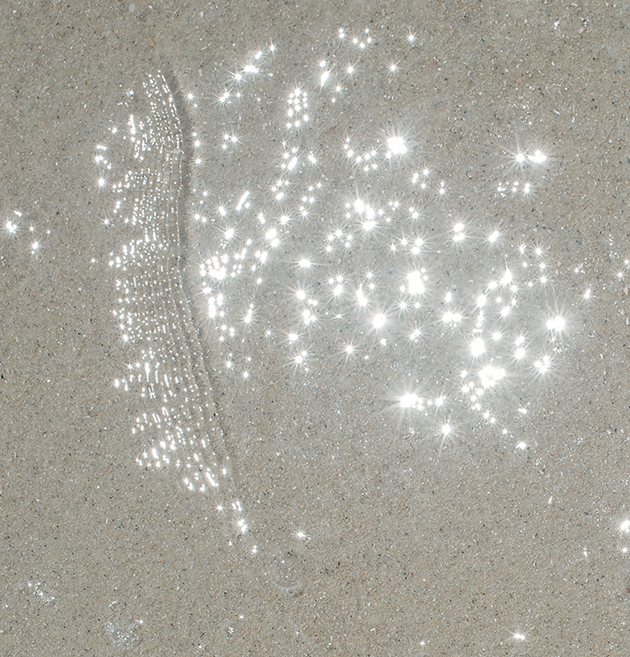Many of John Ashbery’s recent poems are full of sayings and parables and clichés — but from what culture, what country? The world of these poems resembles ours: there are ball games and movies and suburbs and Jesus. But while Ashbery’s language often feels well-worn (“Do not fear the gulches / asleep on the farm”; “Be ready to hug your glass star”), it’s hard to say who exactly wore it, and why. This mixture of familiarity and foreignness is at once funny and profound — many of the formulations are ridiculous, and yet it’s as though Ashbery has invented an Esperanto through which we have access to the kitsch of all possible worlds. We hear, as if for the millionth time, what we have never heard before.
John Ashbery’s writing has always been in an important sense about time (what poetry isn’t?), but the recent poems take up lateness — “life is a short short story”; “the gargantuan sales are over”; “we all had had enough / of it in our youth” — in a variety of ways. The magnificent “Commotion of the Birds,” the title poem of Ashbery’s collection in progress, looks back from “today’s glare” at several centuries of artistic innovation and transmission, managing at once to be a send-up of academic and artistic periods and their beautiful distillation. I think it ranks with his best poetry, but who cares about the rankings: if, at eighty-nine, Ashbery is looking back, it’s from ahead of us.
Whatever the Old Man Does is Always Right
I
First of all, you aren’t telling me the whole story.
Friday saw armpit futures rise across the country.
It is an acknowledged truth that you and your little brother
sidled across a city of two million souls.
Well, and were we supposed to forget it?
That’s not the way the soul functions in today’s suburbia.
We’ll have no more of that, nor go a-roving.
II
All cabbages and cukes are on sale.
That’s because there was a rumor of shortages
in the flanks of winter, before we were on the scene
or were of a responsible age. Sure enough, other young adults
will take our place at the helm. Sure, a bitter pill,
multiple corn dogs, and I ask you. Already Fred Flintstone
was having second thoughts. They arrived in the form of tremendous
cloud barriers, rendering all other life sterile
and attractive. Two more is all you get after we’re outta here.
You saved us once. This is the result, and our resolve.
III
I saw it and no one believed me. The old man wept quietly.
IV
And there was further loose talk in Maida Vale re the kind
of outsiders you can expect now that the yeoman class is finished.
And lo, one went out from them. “Intuit me, Jesus.” And then
the other classes stayed put a certain time before they too set out,
having no permanent idea of the future. Sure enough, supplies
arrived. And were put to good use. But still it was time for more.
V
The old man wouldn’t hear of it. Said we all had had enough
of it in our youth, were spoiled rotten. Wait, where’s
the evidence of that? If I’m spoiled so be it, but at least let
the aroma of charming decay play over the surfaces. Color me shitfaced
if you must, but repay my obloquy in bright coin.
Otherwise the aims and achievements of one side
will always be parallel to the other, and now I bid you good night.
Thus the score was tallied, heavily.
List to all his energy being pulled.
Alarm is a form of handwriting this time. Wash your basement.
This is him doing a moose soup.
VI
Thy tines, thy sediment, swizzling health
that she and a girlfriend grew
of aryan certainty and cockeyed pride, all have been
scratched. I make a 39 percent commission
on our magic spatula,
driving it on four cylinders to the dump.
On the superseded golf course
cherries with Brenda. O their hearts are fantastically gay.
I will.
VII
In Crispy Town
swamp butter, what became our lips,
dear boy . . . old chap, smuggle I mean snuggle
a thank-you note
or my all-night interview, for that matter.
I wonder if my dad’s disk can matter
and yes, she didn’t write poems
and wanted to check on me.
How could anyone?
I’d love to see—don’t give me that.
Dressed to—I can’t complain kinky forests, tenuous.
Look at them and decide which one.
Unhappy lumberings in the heart. Tom is ready.
The jerk remedy is working.
You dropped something.
It must have been important, they say.
And girls’ volleyball
of six dozen years, as smooth a warranty
as you’re likely to snag,
that can blow up suddenly,
a little bit more poignant
to my older sister
straight into the Atlantic.
What is your foot exactly?
Flummoxed . . .
the makeshift western quarter
and I wish I could devalue you a currency.
Where do I first blurt him out?
Commotion of the Birds
We’re moving right along through the seventeenth century.
The latter part is fine, much more modern
than the earlier part. Now we have Restoration Comedy.
Webster and Shakespeare and Corneille were fine
for their time but not modern enough,
though an improvement over the sixteenth century
of Henry VIII, Lassus and Petrus Christus, who, paradoxically,
seem more modern than their immediate successors,
Tyndale, Moroni, and Luca Marenzio among them.
Often it’s a question of seeming rather than being modern.
Seeming is almost as good as being, sometimes,
and occasionally just as good. Whether it can ever be better
is a question best left to philosophers
and others of their ilk, who know things
in a way others cannot, even though the things
are often almost the same as the things we know.
We know, for instance, how Carissimi influenced Charpentier,
measured propositions with a loop at the end of them
that brings things back to the beginning, only a little
higher up. The loop is Italian,
imported to the court of France and first despised,
then accepted without any acknowledgment of where
it came from, as the French are wont to do.
It may be that some recognize it
in its new guise—that can be put off
till another century, when historians
will claim it all happened normally, as a result of history.
(The baroque has a way of tumbling out at us
when we thought it had been safely stowed away.
The classical ignores it, or doesn’t mind too much.
It has other things on its mind, of lesser import,
it turns out.) Still, we are right to grow with it,
looking forward impatiently to modernism, when
everything will work out for the better, somehow.
Until then it’s better to indulge our tastes
in whatever feels right for them: this shoe,
that strap, will come to seem useful one day
when modernism’s thoughtful presence is installed
all around, like the remnants of a construction project.
It’s good to be modern if you can stand it.
It’s like being left out in the rain, and coming
to understand that you were always this way: modern,
wet, abandoned, though with that special intuition
that makes you realize you weren’t meant to be
somebody else, for whom the makers
of modernism will stand inspection
even as they wither and fade in today’s glare.
Featurette
Do not fear the gulches
asleep on the farm. It didn’t die like that.
Don’t go buying anything
and go do something. And very tired, dog-tired,
sometimes I think we were better off
before all the new inventions—the trompe-l’oeil fried egg,
the American flea. I didn’t die like that.
This is how we usually
yes it is too like that
get it on . . .
Much of this has little to do
with how we shaved and behaved,
or mixed doubles.
You’re right, the gargantuan sales are over.
I guess my question (a humble bricklayer) is
kiss it and make it go away; the comedy-on-the-train operetta,
a huge success when it opened in Shanghai,
sewn right-leg to right-leg.
Life is a short short story
with explosive simmering.
Who else d’ya like in poetry?
We didn’t have time for lunch.
Be ready to hug your glass star.
I’d advise you to.
Are you scorpion enough to even try?
No-good green parents accrue in fives.
He doesn’t want to do it himself, then
beautiful, and happy
under a coat of vanish, er, varnish.
(Not in pharmacies) it went viral.
But Seriously
Do not include anger at the distance
it takes to get from here to the hill of downtown
that bears the sapphire tower.
Others than you have made the trip, and found
little to marvel at once the arriving was over.
Your words hold too much meaning once
they’re released. Save an epigram
for the jar. Once it is lapsed
you’ll wear it like an endorsement,
jewel that goes nowhere.
All along the creek where we once stood
new ball games are being absorbed
and declassified. Does that matter to us?
Or is it already time to go back in?
On the Waterfront was a good movie. Can we leave it at that?





























































































